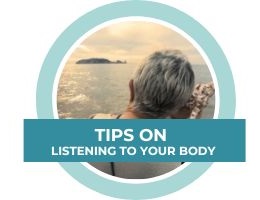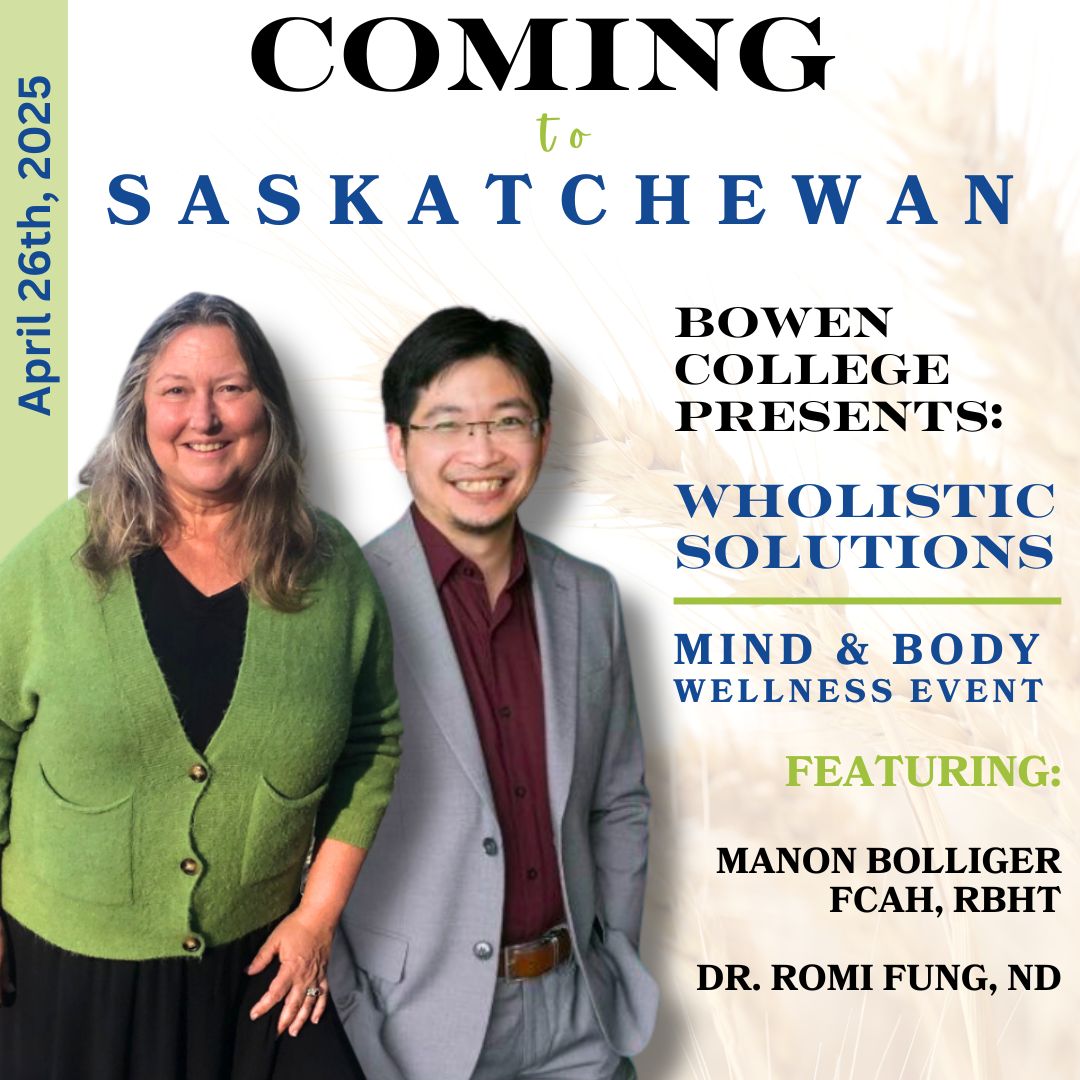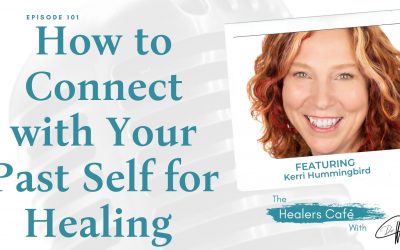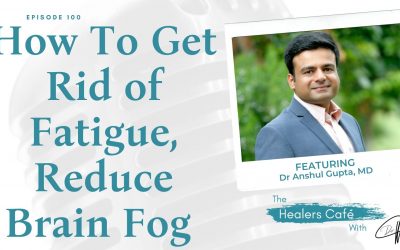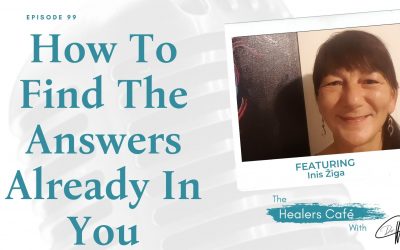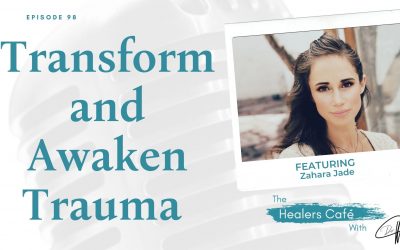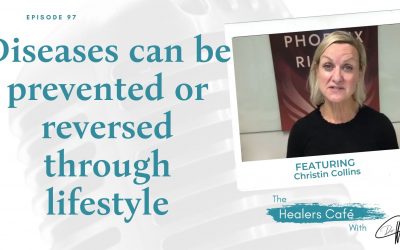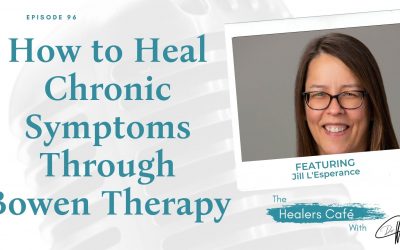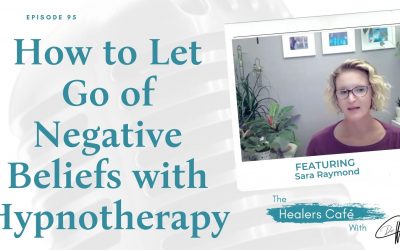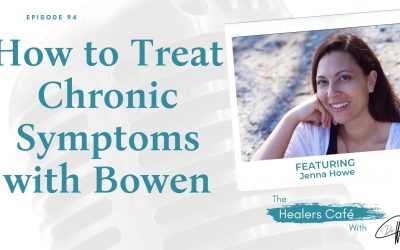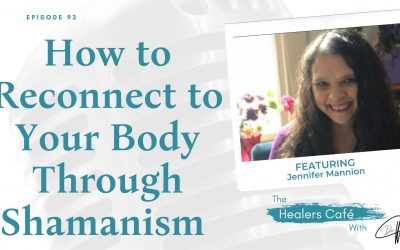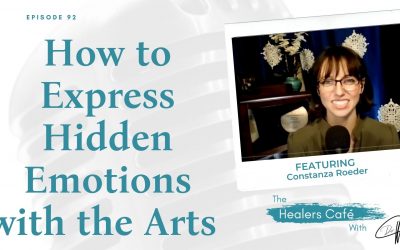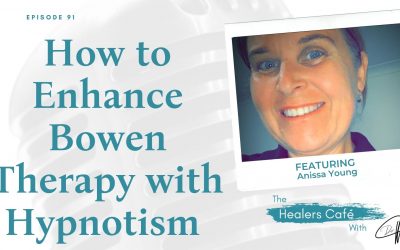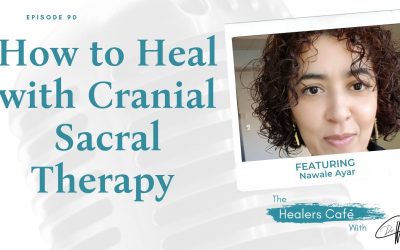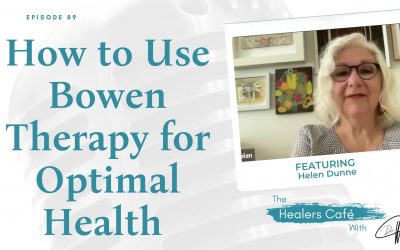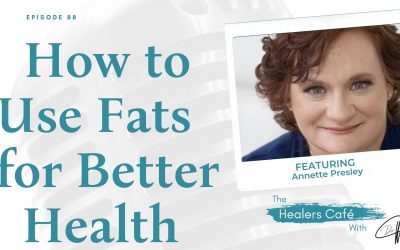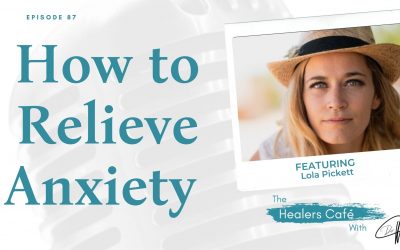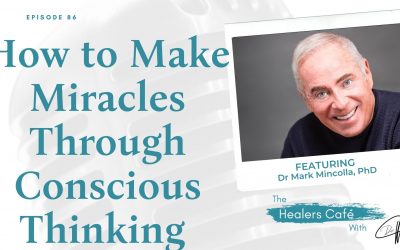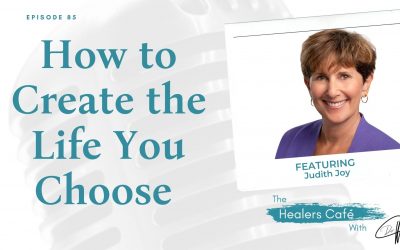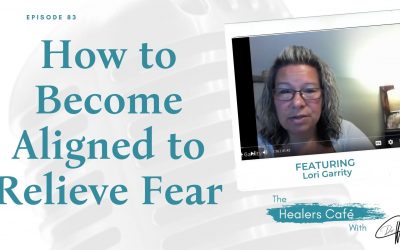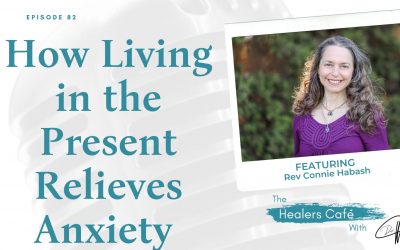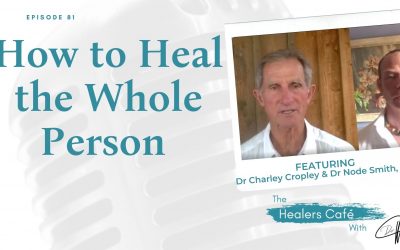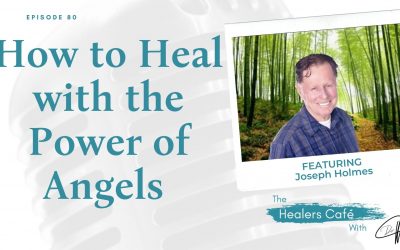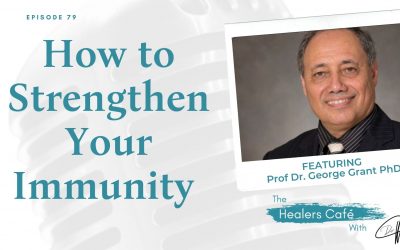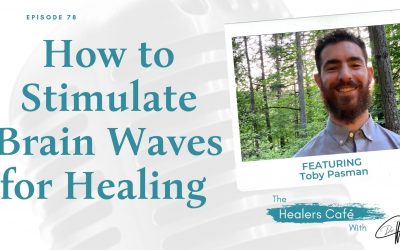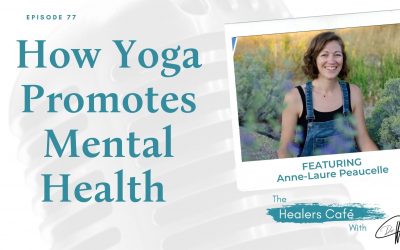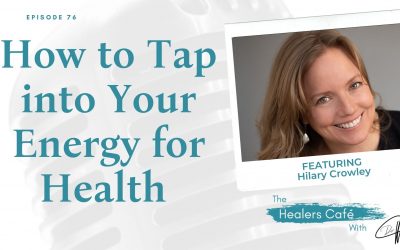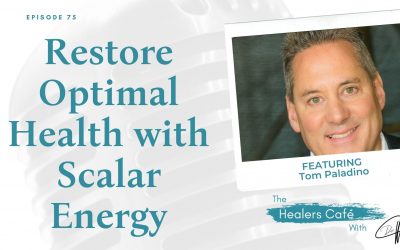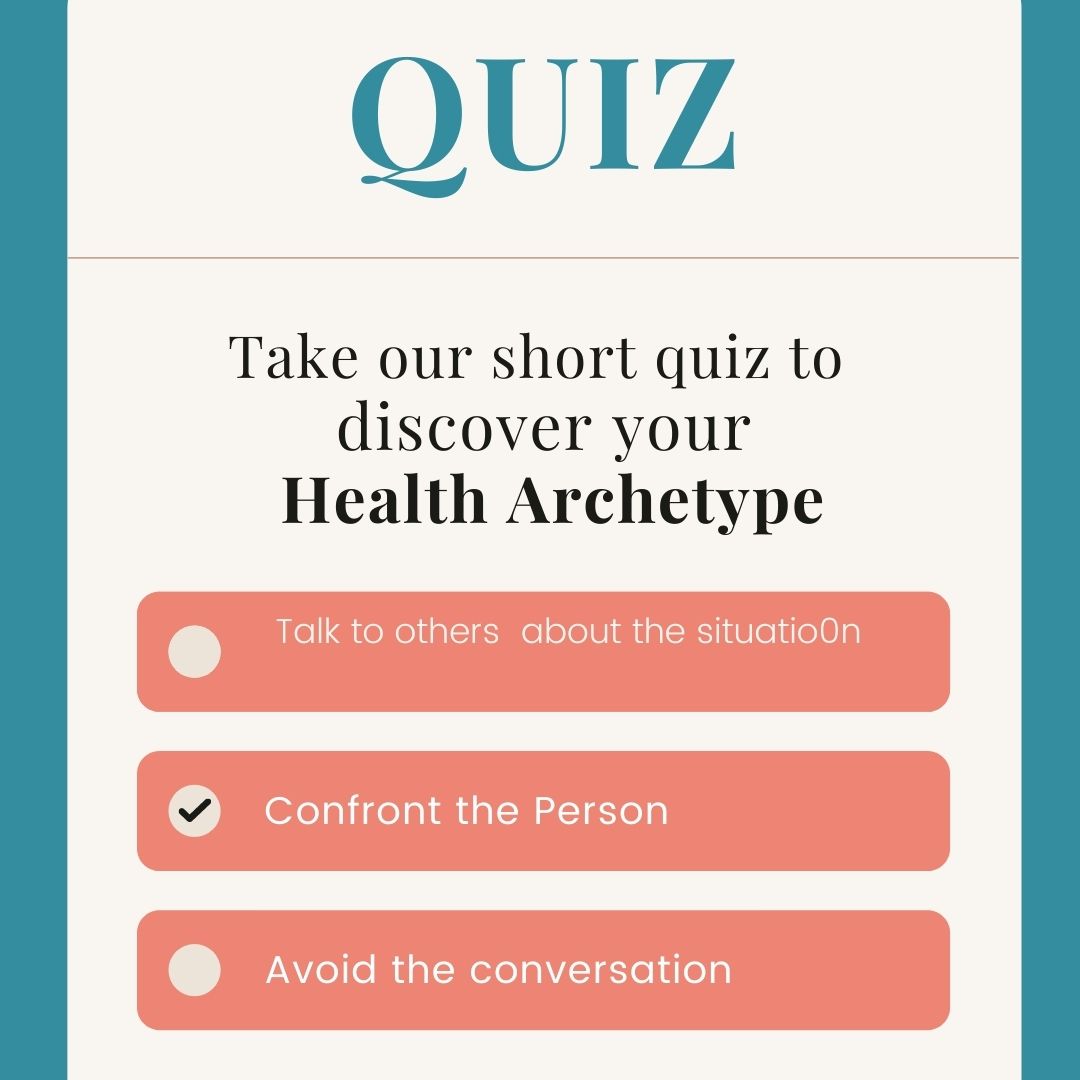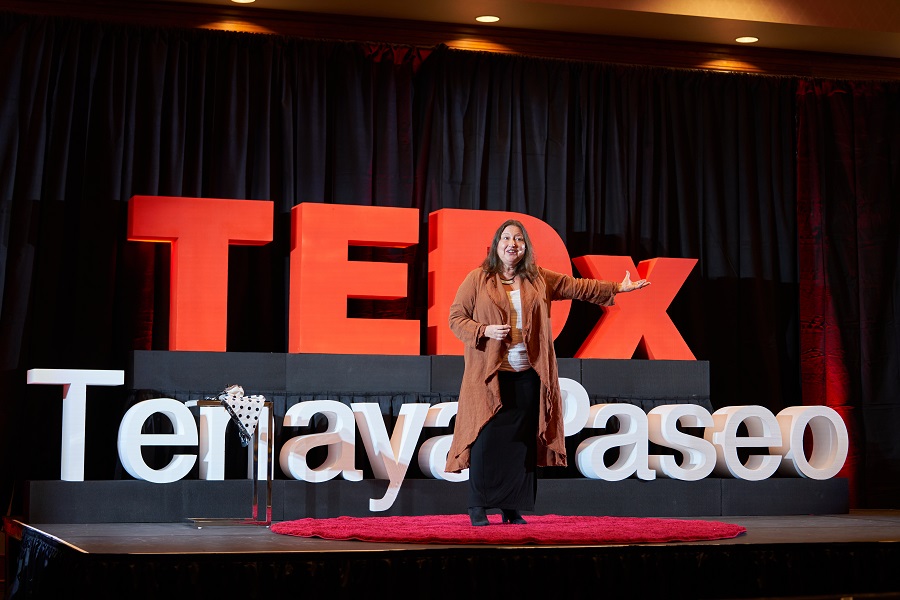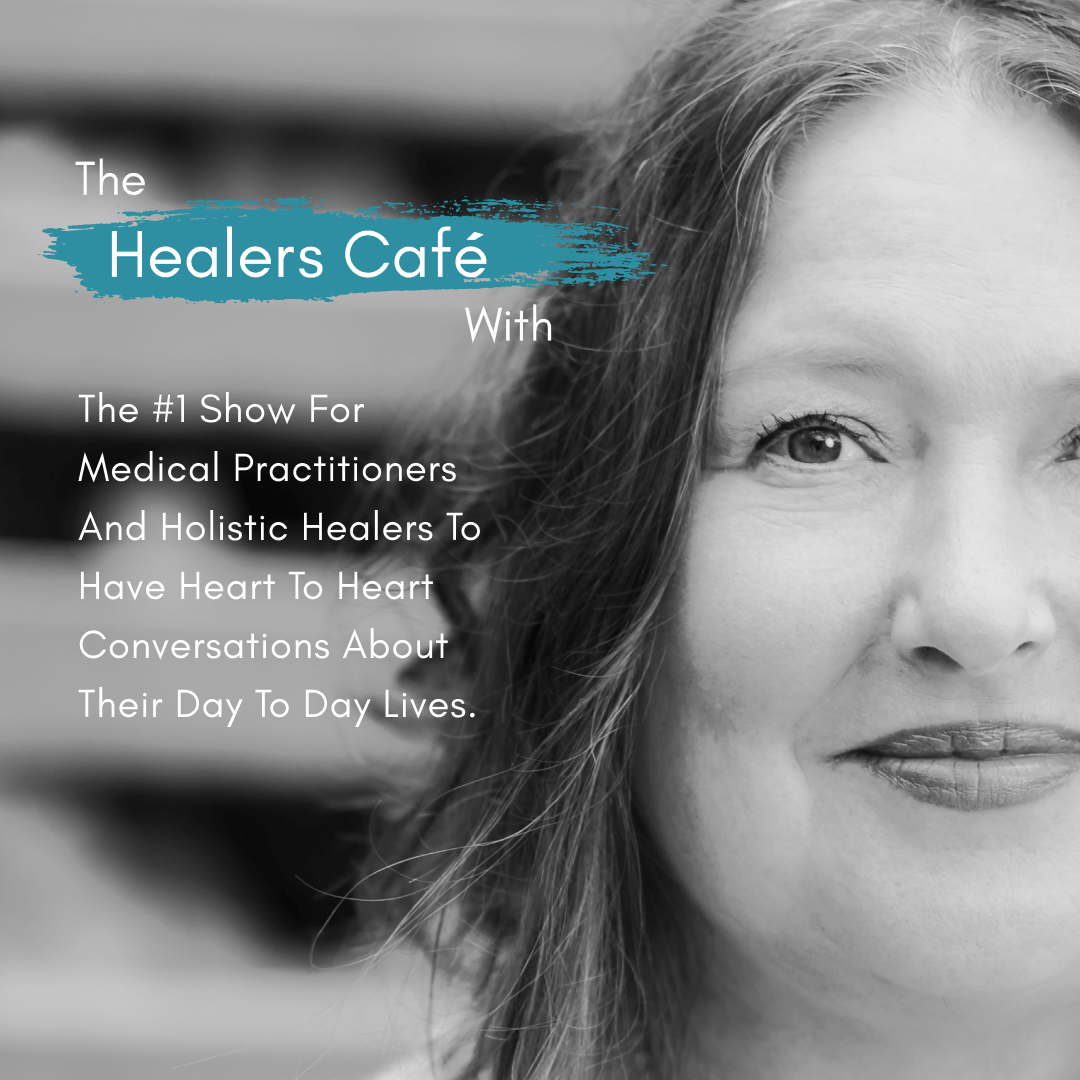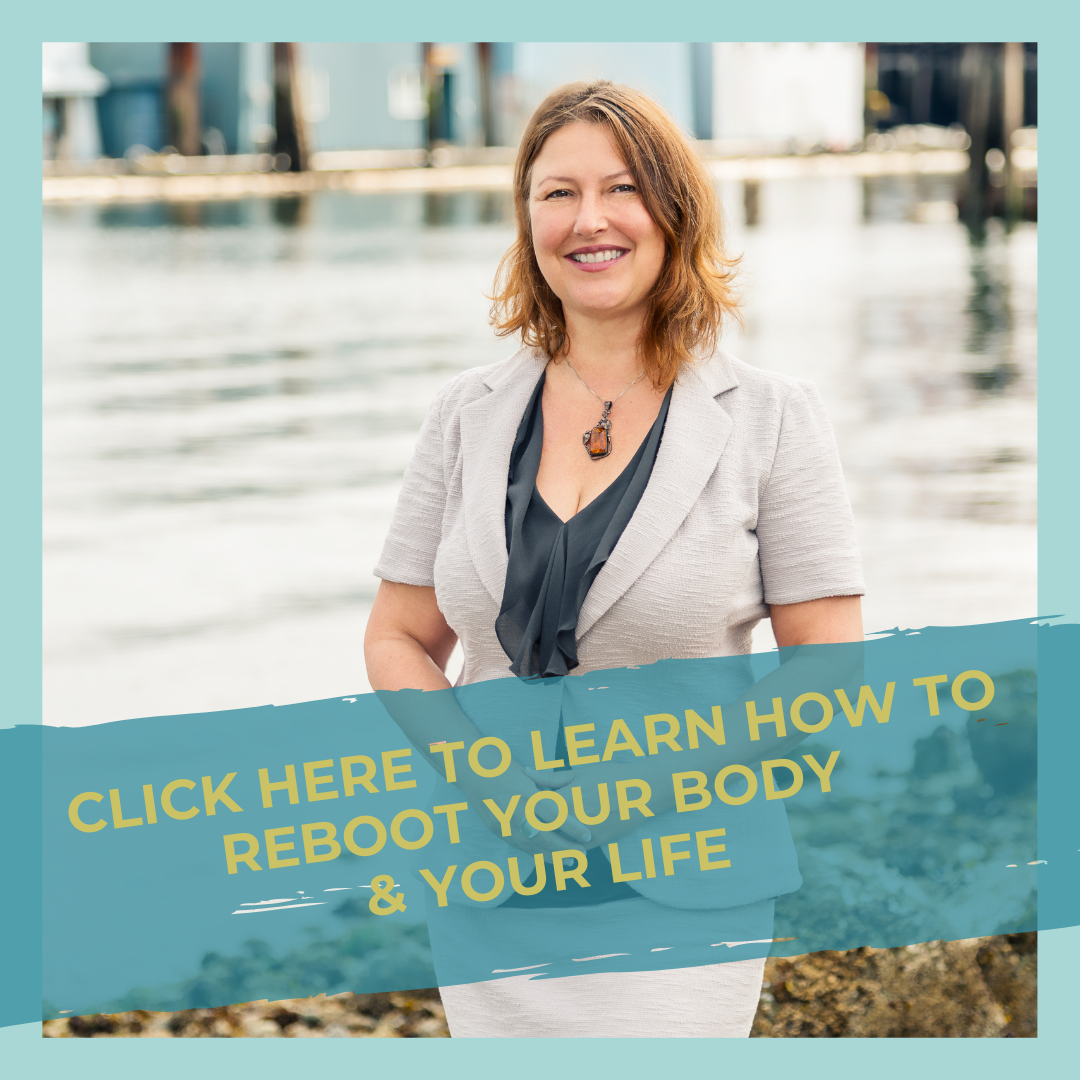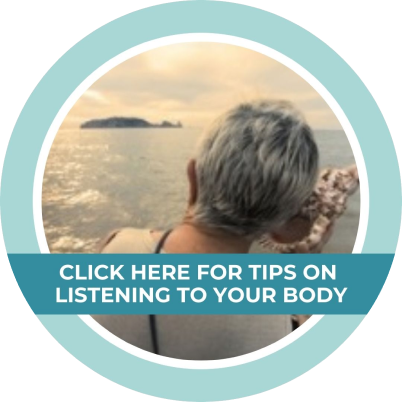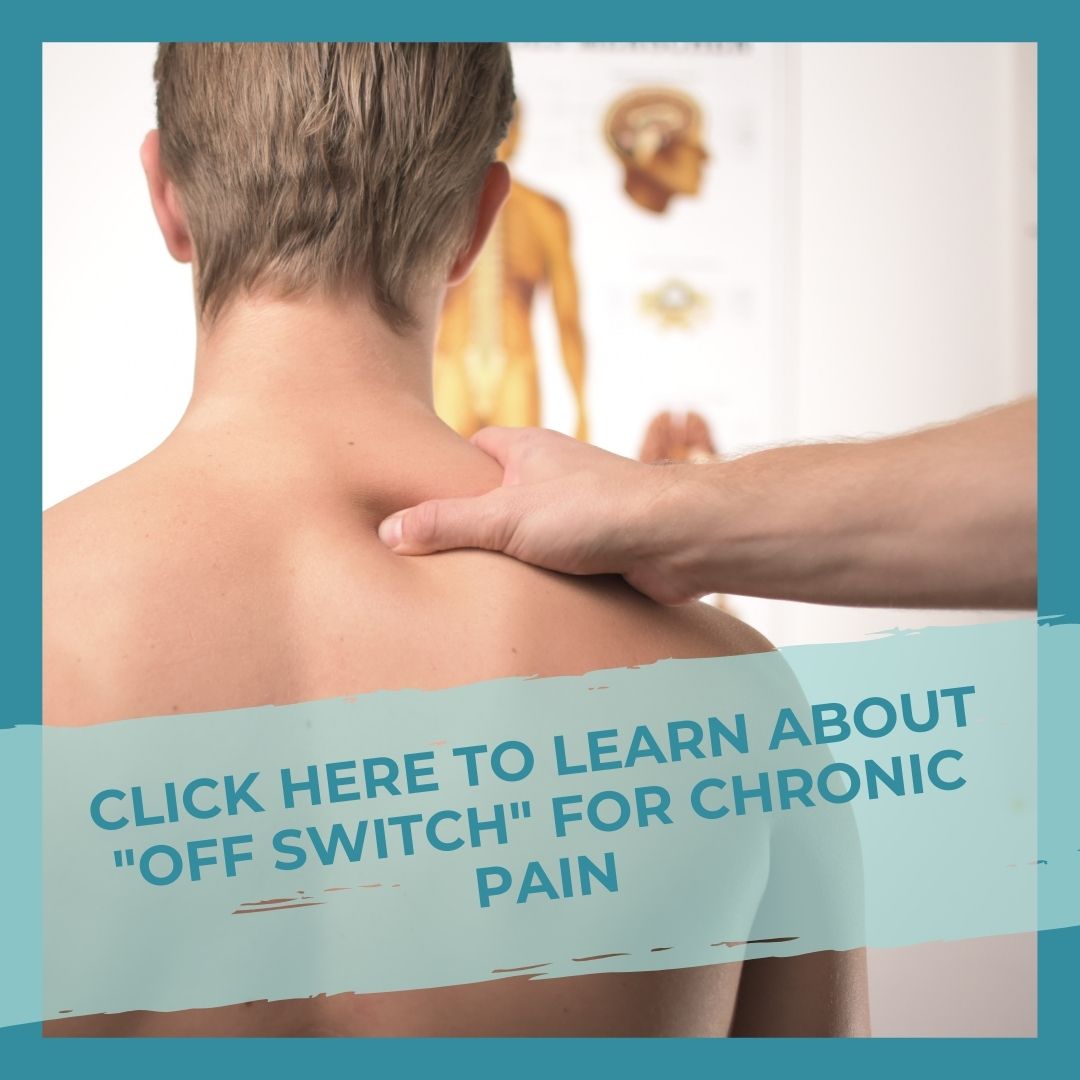
The #1 show for medical practitioners & holistic healers to have heart to heart conversations about their day to day lives.
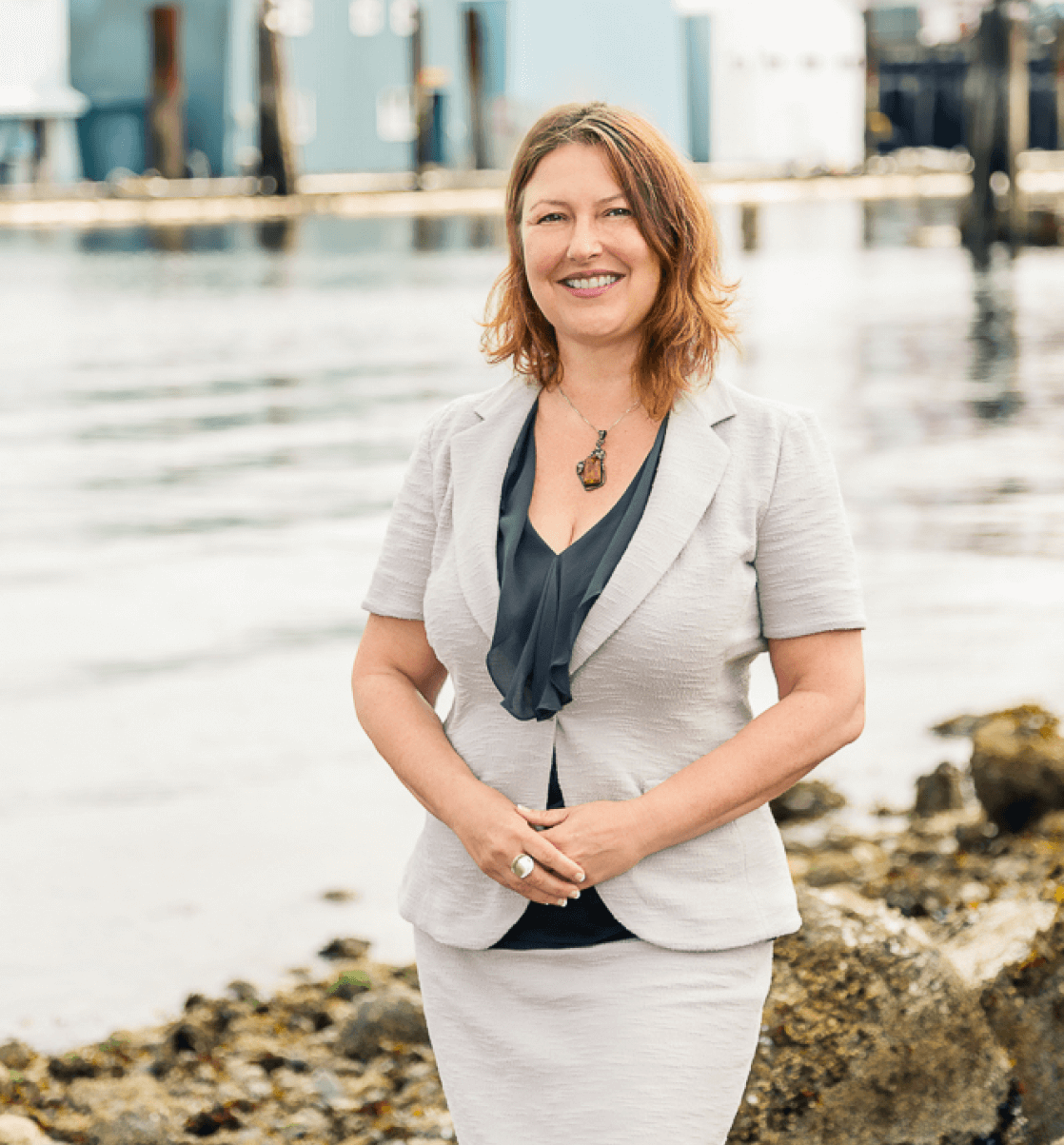
Manon Bolliger (Deregistered with 30 years of experience in health)
iTunes | Google Play | Spotify | Libsyn | iHeartRadio | Gaana | The Healers Cafe | Radio.com | and many more
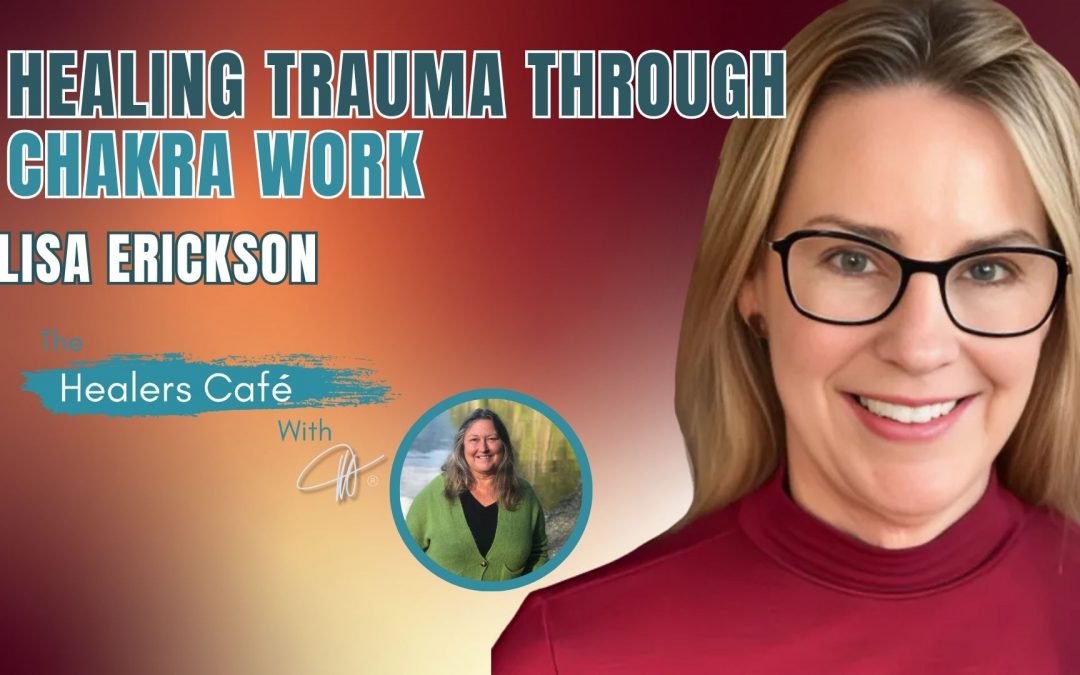
Lisa Erickson
Healing Trauma Through Chakra Work with Lisa Erickson on The Healers Café with Manon Bolliger
In this episode of The Healers Café, Manon Bolliger, FCAH, RBHT (facilitator and retired naturopath with 30+ years of practice) speaks to Lisa Erickson about chakra healing, trauma recovery, and the power of energy work in self-healing.
Highlights from today’s episode include:
Lisa Erickson 05:12
You can erase a memory, but that doesn’t erase the neural, you know, patterns that have been written, and the energy body patterns around coping mechanisms. Because when we’re dealing with trauma, we have the traumatic memory,
Lisa Erickson so just removing the memory doesn’t rewrite the nervous system, but maybe these vibrational methods also help do that. That, to me, is what the chakra system does
– – – – –
Manon Bolliger 18:54
Yeah, and then it’s like, it’s conscious, because you’re also consciously doing this. So you’re reprogramming, in a sense, by acknowledging the self care part, you know? I mean, it may be unconscious what’s happening, but still having the I’m doing this, you know, or I’m allowing receiving this.
ABOUT LISA ERICKSON:
Lisa Erickson is an energy worker and meditation teacher specializing in women’s energetics, sexual trauma healing, manifesting, and daily energy body care. She is the author of Chakra Empowerment for Women and The Art and Science of Meditation both published by Llewellyn Worldwide. Lisa is certified in mindfulness meditation instruction and trauma sensitivity, and has trained in a variety of energy healing and somatic modalities. She is a certified facilitator in Feeding Your Demons created by Lama Tsultrim Allione and a member of The Breathe Network, a non-profit dedicated to supporting holistic healing and healers for sexual trauma survivors. For more information on Lisa’s work, visit www.EnlightenedEnergetics.com.
Core purpose/passion: Women’s empowerment although I do work with men too, sexual trauma healing, rebalancing the feminine and masculine within us all, and daily energy work – being able to access our chakras anytime to shift in the moment.
Website | Facebook | Instagram | LinkedIn | LinkTr.ee |
ABOUT MANON BOLLIGER, FCAH, RBHT
As a recently De-Registered board-certified naturopathic physician & in practice since 1992, I’ve seen an average of 150 patients per week and have helped people ranging from rural farmers in Nova Scotia to stressed out CEOs in Toronto to tri-athletes here in Vancouver.
My resolve to educate, empower and engage people to take charge of their own health is evident in my best-selling books: ‘What Patients Don’t Say if Doctors Don’t Ask: The Mindful Patient-Doctor Relationship’ and ‘A Healer in Every Household: Simple Solutions for Stress’. I also teach BowenFirst™ Therapy through Bowen College and hold transformational workshops to achieve these goals.
So, when I share with you that LISTENING to Your body is a game changer in the healing process, I am speaking from expertise and direct experience”.
Mission: A Healer in Every Household!
For more great information to go to her weekly blog: http://bowencollege.com/blog.
For tips on health & healing go to: https://www.drmanonbolliger.com/tips
SOCIAL MEDIA:
– Linktr.ee | Rumble | Gettr | Facebook | Instagram | LinkedIn | YouTube | Twitter |
About The Healers Café:
Manon’s show is the #1 show for medical practitioners and holistic healers to have heart to heart conversations about their day to day lives.
Subscribe and review on your favourite platform:
iTunes | Google Play | Spotify | Libsyn | iHeartRadio | Gaana | The Healers Cafe | Radio.com | Medioq | Audacy |
Follow The Healers Café on FB: https://www.facebook.com/thehealerscafe
Remember to subscribe if you like our videos. Click the bell if you want to be one of the first people notified of a new release.
* De-Registered, revoked & retired naturopathic physician after 30 years of practice in healthcare. Now resourceful & resolved to share with you all the tools to take care of your health & vitality!
TRANSCRIPT
Introduction 00:00
Welcome to the Healers Café. The number one show for medical practitioners and holistic healers, to have heart to heart conversations about their day to day lives, while sharing their expertise for improving your health and wellness.
Manon Bolliger 00:20
So welcome to the Healers Cafe. And today I have with me Lisa Erickson, and she is an energy worker and meditation teacher specializing in women’s energetics, sexual trauma, healing, manifesting, and daily energy body care. She’s also the author of Chakra Empowerment for Women, and the Art and Science of Meditation both published by, I’m not sure I’ve got that one right. Louellen?
Lisa Erickson 00:49
Louellen, yes.
Manon Bolliger 00:51
Yeah. And you’re also a certified mindful meditation instructor. And anyway, it goes on and on, all kinds of credentials, but yeah, so I’m really excited to have you on the show. And welcome. First of all, anything you would want to add to this very quick summary I did of you?
Lisa Erickson 01:13
No, that was great. And I’m just really happy to be here on Healers Cafe, and I love talking with fellow healers. So wonderful.
Manon Bolliger 01:21
Okay, well, I guess couple things I’d love to explore with you. One is, how do you work with chakras and healing, especially sexual healing, if that applies to that. And the other question we can go in either order, is, as some people are, you know, aware, were a lot of technologies being unleashed. That has been, I think it’s 600 patents now that have been sort of kept, you know, from the general population. And one of them is med beds. And these med beds have the capacity of regenerating pretty well everything in your body. So it’s quite a major thing. And amongst the med beds, amongst what it can do is help restore or a person from sexual trauma. So currently is being used for the young children and babies that have been affected by this ritual sexual abuse, and the soldiers that have gone in to save them, basically. And this is, you know, happening everywhere around the world. So I, I was curious, and I’ve never experienced one, and I don’t think they’re yet public, to the extent of, you know, we can go to one. But I’m just wondering, it’s a machine, you know you lay in a machine, and you know if you had arthritis, and you come out and your joints are fine, I can see that when it comes to trauma, I have…I have doubts, I have questions. I mean, I believe that it works. But what is healing really all about in that context?
Lisa Erickson 03:23
Yeah, yeah.
Manon Bolliger 03:24
So I just thought I’d throw this big question…
Lisa Erickson 03:27
Throw it out there and we’ll go, yeah.
Manon Bolliger 03:29
We’ll see where it goes.
Lisa Erickson 03:31
Well, and let me start with the way I work with the chakras, because it is relevant. I really view it as a technology. It actually is like our subtle body technology, our energy body, our subtle body, is this intermediary layer between our physical our psyche and our spirit. So when you’re talking about trauma, it often impacts all …
Read more...
all of them. So when you’re working at the energy level, you can access physical issues that may be stemming from trauma. You can access psychological patterns. Ultimately, you know, I’ll get there in a moment, but you can go these different directions, right? And when we look at energy traditions from all around the world, throughout history, some were more energy medicine focused. So they were more focused on the chakras as they intersect with the physical body and systems. Some were more psychological, some were more spiritual. And so it’s just this amazing range of things that you can work so I work more contemplatively. Like, how do you with your own attention and awareness, go into a chakra and learn how to clear it and strengthen it? How do you identify when you’re experiencing a pattern which is destructive to you, which may be trauma based or based on something else, anxiety, depression, a physical issue, learn how to go into that energy and work with the nearest chakra to potentially help you. So it’s with your own mind. Of course, there’s many other chakra healing techniques that utilize crystals or utilize other…or sound healing that utilized physical vibration. So without being familiar with med beds, that, to me, is what they’re working with. They’re working with physical vibration, I assume.
Manon Bolliger 05:11
Yeah. There’s energy there.
Lisa Erickson 05:12
Yeah. So there’s an attuning at the vibrational level. So that can shift a lot, that can shift a lot. But so far, I personally, have never seen a vibrational modality that just functions on its own without a psychological context, meaning our own awareness. We still know what consciousness is, right? Like brain science, neuroscientists still can’t that is beyond measurable yet so far. So that’s the piece that has to also be brought into any trauma healing journey. You can do the physical vibration work, but then how do you create, you know, a new view of what happened, right? You can erase a memory, but that doesn’t erase the neural, you know, patterns that have been written, and the energy body patterns around coping mechanisms. Because when we’re dealing with trauma, we have the traumatic memory, perhaps, and then you have the coping mechanisms that develop, disassociating, fight, flight or flee, right? You’re also, you’re working with both, and so you have to be able to work with both and rewriting coping mechanisms, usually is a process of vigilance, and is it’s, to some extent, psycho spiritual work. So that’s kind of my start. And let’s love to hear your thoughts.
Manon Bolliger 05:13
Yeah, no, that’s actually…I follow you on the distinctions you’re making. I don’t know the med beds and their capacity I have heard because some of the victims are, you know, babies and three year olds and so they’re the impact of trauma on them is different. It’s not that they remember and process like if it was a 12 year old or something like that. So there is erase of memory. But when you talk about like, coping mechanisms, you know, I don’t know, does that get addressed? Then I would imagine, I mean, that so far, the results seem to be, you know, good. I mean, it seems like these kids, have found a life, but, yeah, but I don’t know. I’m very much believing in the context of healing, yeah, you know, but maybe it’s a bias based based on age, you know?
Lisa Erickson 07:40
Maybe, yeah, because our brain changes those first five years are so different than the rest of our life. Those first years are everything. So that’s very interesting to me, that that’s where it’s being used, yeah? And that’s very interesting, yeah. And I think from a holistic perspective, you’re always working every level, like, that’s my approach. You’re working it physically, you know, working it energetically, you’re working it psychologically, spiritually. That’s what holistic means. But under that age, you don’t have a fully formed psyche or body, so it’s a different a different modality, maybe, yeah.
Manon Bolliger 08:20
Yeah. And that’s why I was saying. Maybe it actually doesn’t answer in a way that because it is different, you know, when you help people, I mean, I use different modalities, or used because I’m not in practice anymore. But, you know, I use different modalities, physical and energetic, spiritual, etc, but it is very different when you can’t bring the memory back.
Lisa Erickson 08:48
That’s right.
Manon Bolliger 08:49
Right? And so, and you know, it’s happened, because after a while, there’s enough signs that cognitively, you say, okay, it must have happened you know? But it’s very hard to remember, you know. Whereas, like I said, an older child who gets molested will remember vividly, usually, even if it has been temporarily suppressed, it will come back, you know. So, yeah, it may, it may give an answer to that, you know, and I wonder, too, with the soldiers who, you know, have rescued these children to, yeah, because they’re older, yeah. So they are traumatized by what they’ve seen. You know, it’s also the organ harvesting, which is done well, they’re, they’re alive, right? Like, you can’t harvest an organ when a person’s dead. So, you know, it’s, I mean, it’s just unbelievable that this kind of stuff is actually happening in our world. But I guess we’re, you know, we’re discovering that this is true, and, yeah, to think of what’s available, to help these people to, I mean, they’re truly victims of to move of this, yeah, to move forward, you know. So…
Lisa Erickson 10:10
Yeah, memory is such an interesting thing and the nervous system, because I also how many people experience trauma of all types, is maybe they have the memory. Maybe they don’t. We think of like the kind of movie version of PTSD, which is like, you’re having flashbacks, right? That’s really a small percentage of people. Most people, it’s just they live in a constant state of anxiety or depression. They don’t ever feel safe, ever, no matter what, right and their nervous system is in this constant state of hyper alert, and so you’re trying to rewrite the whole body and nervous system. So just removing the memory doesn’t rewrite the nervous system, but maybe these vibrational methods also help do that. That, to me, is what the chakra system does, like in ancient India and other areas where chakras were studied, it was always taught, even 1000s of years ago, to intersect with our glandular system, our endocrine system and our nervous system, right? And so these two are really everything.
Manon Bolliger 11:14
Yeah, well, I think I’ve seen that in because I teach with Bowen College, Bowen therapy, spelled B, O, W, E N, just in case people are driving.
Lisa Erickson 11:27
Or the or the plane, right?
Manon Bolliger 11:28
It’s not that well known, but it definitely, you know, rewires the nervous system, and it takes people out of fight and flight, for sure, and it does seem to not tranquilize. It’s the wrong word. But make tranquil the entire revved up, you know, nervous system so that, you know, one can heal. And that part does not need discussion.
Lisa Erickson 12:00
Right. Right, exactly.
Manon Bolliger 12:01
That just happens through touch, right? So then, you know, how far is touch from let’s say, you know, in the olden days, they used to have bells that had, you know, that were healing bells. That’s why, you know, kids would go on lay underneath the church bells to receive frequencies when they were put at a certain frequency, where that was possible, you know? And I’m thinking, okay, that’s, that’s not touch, but it’s, it impacts directly our nervous system. You can, you can feel it, you know. So anyhow, so it’s so tell us about chakras. And how…
Lisa Erickson 12:43
I’d love to talk a little bit about what you just said.
Commercial Break 12:46
What would your life be like if you were pain free? If you were one of the millions who suffer from chronic pain, the thought of just one day without it may seem impossible. This is often because conventional medicine tends to fall short in the treatment of pain, opting to prescribe pills or recommend surgery rather than getting to the root cause of the problem. But if you are suffering with emotional or physical pain, there is hope. Join the founder and CEO of Bowen College, Manon Bolliger, live online for your body, mind reboot. Learn how to listen to your symptoms and get to the root cause of your pain, plus be trained in basic Bowen therapy moves so that you can reboot your body for optimal health. You don’t have to live in pain. You can heal, stop the pain pill cycle by visiting www.yourbodymindreboot.com to learn more and to register.
Lisa Erickson 13:55
Because, you know, it’s so interesting, because I do love sound healing. I attend sound healing. I don’t, I don’t practice it so much. But you know, similar idea, right? There’s these frequencies. They’re tied to clearing different chakras. There’s different frequency systems for different kinds of healing. And yeah, you can just experience this profound, deep relaxation, which is physical and energetic. It’s like it starts out energetic, and it goes into and it creates a whole new default for you. And that’s what you’re talking about, right? So you never have experienced that, yeah. Then what I’m curious what happens, at least, like, in the way I work with people, is then, the part that sometimes people need to be taught, is then, okay? So now, when I start to move out of that, how do I get back into it? I now have a reference point for what that feels like, right? That takes tools and practice, and so that’s that second part, like, Okay, I’m going to focus on my heart chakra, I’m going to take three breaths, I’m going to activate green light there. I’m going to imagine it going it back into my nervous system. You know, those kinds of tools help people. So it’s interesting to me, there’s kind of two steps. There’s giving that I would agree, yeah, right. And then there’s the tool to help you get back to it on your own.
Manon Bolliger 15:14
Yeah, and I think, you know, certainly, I’ve been doing Bowen for, I guess, 35 years now, so it’s a long it’s a long time, and I don’t think I appreciated, yeah, the need for for the patient to or the client to do something on their own outside of the visits that reset them. Now, if it’s a physical trauma or physical anything, you know, arthritis, whatever pain injury from the fall, you just need three to five treatments. So it’s not a big deal. But when it’s trauma involved, it’s, it’s like you want to give a skill to reset on on their own. Now, with enough treatments, the body will write itself. But I love the idea, you know, as as I’ve been observing healing for you know, all this time, I love the the autonomy and the, you know, taking charge of your health that I think is necessary nowadays. You know that people really say, okay, what can I do to help myself? You know, and I found that some of the breathing techniques has, it’s like a shortcut into resetting what the physical therapy has, set.
Lisa Erickson 16:44
Yep.
Manon Bolliger 16:45
Sometimes that’s like enough to kind of go, oh, you know, or sometimes, like, the focus of complete presence, you know, like, what like feeling the water as you’re watching.
Lisa Erickson 16:59
The elements are amazing, yeah.
Manon Bolliger 17:01
Yeah, that type of thing. But so chakras doing the work you’re doing is is also a way of reconnecting them to that feeling state?
Lisa Erickson 17:14
Exactly and everything you just said. That’s why I called it chakra empowerment. For me. Yes, I do distance healing, right? Yes, I can, you know, try generate vibration. But what I want you to be able to do is access that for yourself, because the the chakras are actually our own inner technology. To do that, that’s truly empowering someone, right? Um, yeah, so that’s, that’s really the focus of of what I do is, you know what? What energies do you need more of? What’s blocking your ability to access that? What’s your default kind of energetic setup? And how can we help reprogram that and then give you the tools where someone you know is rude to you and you feel triggered right? That you can in that moment you start to go into a trauma response. You can work with it in that moment and not have your nervous system go into dysregulation, right? Be Able. And that’s, that’s really, that’s really the focus of it so, and I think it’s interesting, because then the chakras tie into the elements as well, like the chakras, each one is associated with an element. So someone who needs more root chakra, it’s like, can you spend some time with a tree? Can you go really out walking every day and really focus on your feet, and that is that mindful piece too, to come in presence. Water. Can you take a bath? Can you, you know, that’s the second chakra, like you can go through each of them and use the elements, washing the dishes right, to really connect. And it’s not just physical. It’s actually also energetic when you connect with an element.
Manon Bolliger 18:54
Yeah, and then it’s like, it’s conscious, because you’re also consciously doing this. So you’re reprogramming, in a sense, by acknowledging the self care part, you know? I mean, it may be unconscious what’s happening, but still having the I’m doing this, you know, or I’m allowing receiving this. It doesn’t have to be an action of doing, but it kind of cements the self care, which I think a lot of people resist for whatever reason.
Lisa Erickson 19:36
Yeah, it’s partially our culture. Sometimes it’s feeling unworthy, I don’t know. But yes, just allowing yourself, giving yourself permission, is such a huge part of it, yeah, yeah.
Manon Bolliger 19:46
This it is, yeah. So we don’t have that much time together. Give us a kind of a case study. No names, nothing, you know, all that the usual. But just for people who they’ve heard about chakras, but they have no idea the power of using it the way that you’re you’re teaching.
Lisa Erickson 20:11
Well, I think the most common thing I see, this will be kind of an amalgamation case study, right? Someone who’s experienced sexual trauma, especially in childhood, is there some disassociation from the body, and they don’t even realize it. So what’s so interesting is often I have a lot of people come to me who are very spiritually developed, meaning their third eye, their crown, their upper chakras, are well developed, partially because in childhood, they had to become so intuitive to try to stay safe, right? So this gets developed. But they are, like, literally off their root chakra. They’re like, lifted off of it. And so they have all these health problems and health modalities they they’re always like, well, nothing ever works for me. It only lasts for a few weeks, right? So it’s, it’s really, like, I think of it like the Root Chakra, you know, located at the…I work with the tailbone. It’s like where our subtle body and our physical body link in. And someone can develop this default where it feels safer to never quite be in your body, be slightly out of it. So then if something hurts your body, you don’t feel it fully. That’s what disassociation is. So then it doesn’t feel comfortable to come back down in the root. And it’s not always easy, because at first it feels overwhelming that physically too much is happening, or I can’t handle it, but we do all this work on the lower chakras, and then what happens is, all of a sudden, physical healing modalities will start to work things that weren’t taking it was like the person wasn’t fully present in the body, and then the body’s natural healing capacity couldn’t come forward. So that’s really like, one of the most common things that I’m working with is some level of disassociation in people who are very spiritual, but it is grounded. It isn’t grounded.
Manon Bolliger 22:01
Right, right. And an example of what the work actually is like. What is it that when you say you work with?
Lisa Erickson 22:11
Yeah, so I am working on helping them literally meditate on their root chakra. We have different visuals that we’re working with, the earth sending up energy and creating a protective bowl the earth, infusing the body from the root chakra with a sense of protection. We might work with a ring of fire like different visuals that actually activate this subtle body and boundaries, imagining a second skin on top of your physical skin that is protecting you from other people’s emotions or energy. But a lot of work is just getting someone down into being able to drop down fully into their body, and then, depending on the person in between. Again, I may be working with the earth element, really trying to help them get down into their feet and connected to Earth. We may be working with increasing protein in the diet, because protein is connected to the Root Chakra. So there’s all these different ways of going about it, but it’s mostly contemplative and repeating that over and over, sometimes we’re trying to rewrite memories from what happened the week before. Like, yeah, I know I got anxious and I just spaced out right? We will rewrite that memory of, no, I went down, I stabilized, and this is how I handled it, instead, because you’re trying to create a new neural net. So all of that is part of the work.
Manon Bolliger 23:35
Interesting, yeah, yeah, no, very good. Well, I think that you have just a few more minutes to share. If you have anything else, you have a book out, you have courses I believe?
Lisa Erickson 23:47
Yes, yeah, I do workshops. I work with one and I do workshops. Yeah, yeah. My website is enlightenedenergetic.com so that’s probably the easiest place to find. Everything you can find my book and workshops and Instagram. Anyone who is into any of that? Yeah, I also work with women’s life phases, which sometimes dovetails with trauma. We have certain times in our life where haven’t dealt with our trauma, it is likely to surface. Postpartum is one perimenopause. So sometimes, especially with women, I’m working with those things as well.
Manon Bolliger 24:22
Yeah, in your notes, you mentioned you work with men as well, but I think I do a lot of women’s issues that have been focused on by men, not women. So there’s parts missing.
Lisa Erickson 24:38
Exactly, especially we’re finally figuring it out. You know, it’s been around forever. Perimenopause is having a moment right now. Yeah.
Manon Bolliger 24:48
Exactly. Okay. Well, great. Well, it was really nice discussing just trauma with you and healing methods and what it takes to heal. And so thank. Much, very much for being available.
Lisa Erickson 25:02
Likewise. Thank you and for your work trying to help spread different modalities. Very appreciated.
ENDING: 41:33
Thank you for joining us at the Healers Café. If you haven’t already done so, please like, comment and subscribe with notifications on as I post a new podcast every Wednesday with tons of useful information and tips for natural healing that you won’t want to miss.
Continue your healing journey by visiting TheHealersCafe.com and her website and discover how to listen to your body and reboot optimal health or DrManonBolliger.com/tips.
* De-Registered, revoked & retired naturopathic physician, after 30 years of practice in healthcare. Now resourceful & resolved to share with you all the tools to take care of your health & vitality!
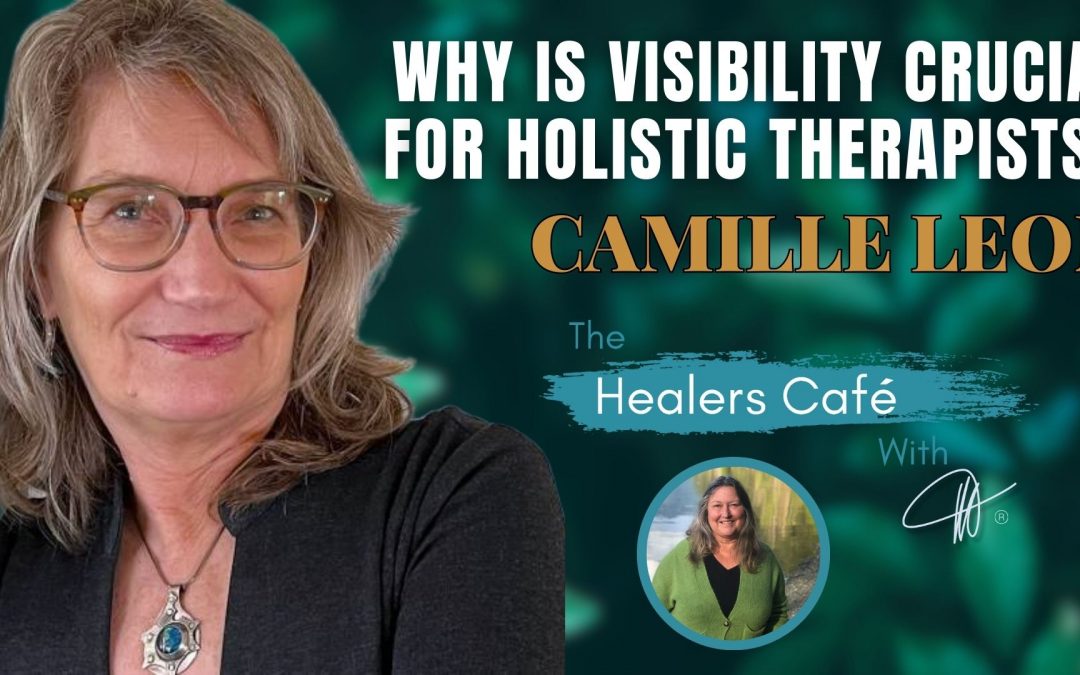
Camille Leon
Why Is Visibility Crucial for Holistic Therapists? Camille Leon on the Healers Café & Host Manon Bolliger
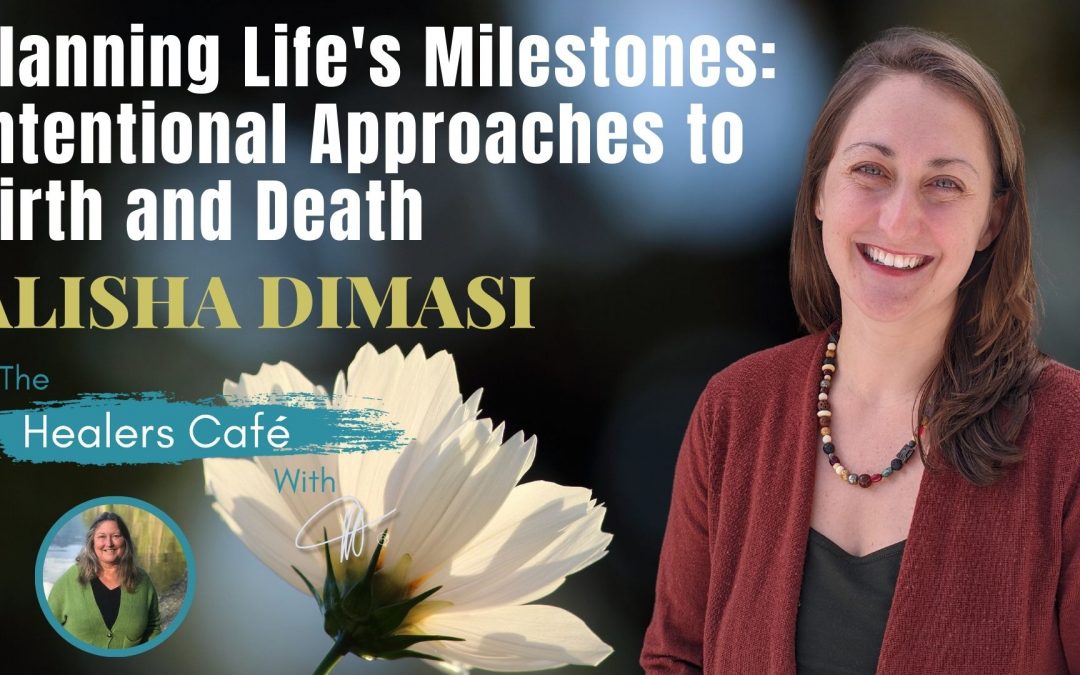
Alisha DiMasi
Planning Life’s Milestones: Intentional Approaches to Birth and Death with Alisha DiMasi on the Healers Cafe & host Manon Bolliger
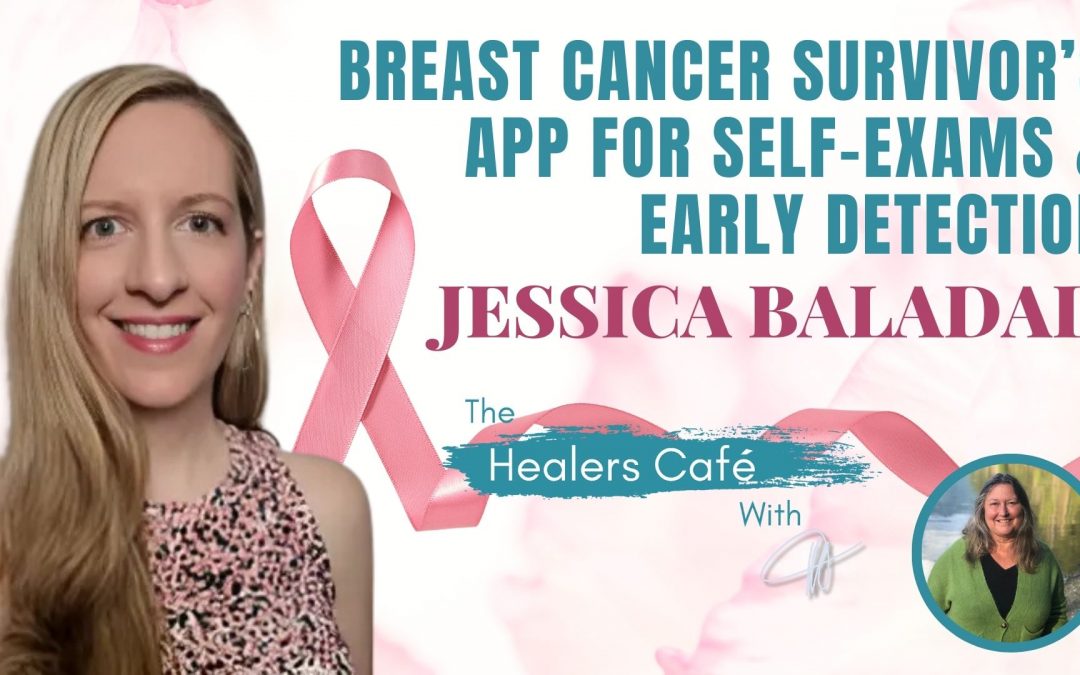
Jessica Baladad
Transforming Breast Cancer Awareness with a Life-Changing Self-Exam App with Jessica Baladad on the Healers Cafe & host Manon Bolliger
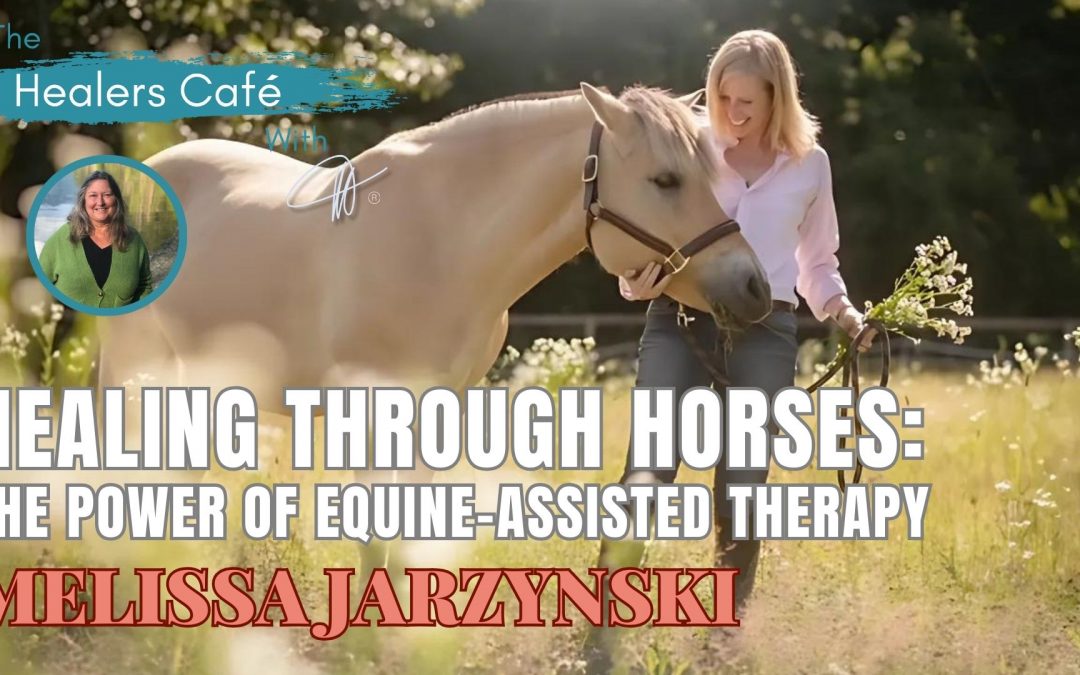
Melissa Jarzynski
Harnessing Healing: Equine Therapy’s Impact on Trauma Recovery with Melissa Jarzynski on the Healers Cafe & host Manon Bolliger
Kerri Hummingbird
Dr. Anshul Gupta, MD
Ines Žiga
Zahara Jade
Christin Collins
Jill L’Esperance
Sara Raymond
Jenna Howe
Jennifer Mannion
Constanza Roeder
Anissa Young
Nawale Ayar
Helen Dunne
Annette Presley
Lola Pickett
Dr Mark Mincolla, PhD
Judith Joy
Lori Garrity
Rev Connie Habash
Dr Charlie Cropley, ND & Dr Node Smith, ND
Joseph Holmes
Prof Dr George Grant PhD
Toby Pasman
Anne-Laure Peaucelle
Hilary Crowley
Tom Paladino
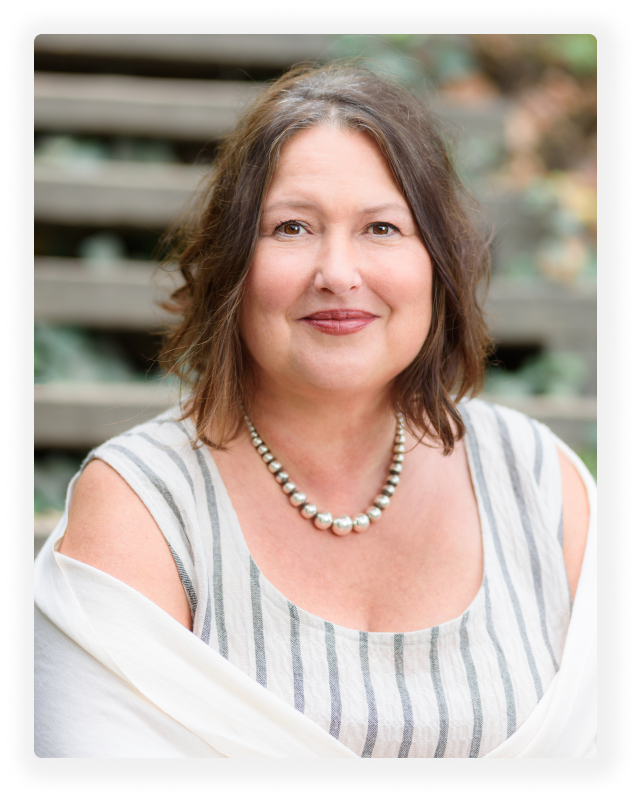
A Better Way To Connect With People
Manon is a newly retired Naturopathic Doctor, the Founder of Bowen College, an International Speaker, she did a TEDxTenayaPaseo (2021) talk “Your Body is Smarter Than You Think. Why Aren’t You Listening?” in Jan 2021, and is the author of 2 Amazon best-selling books “What Patient’s Don’t Say if Doctors Don’t Ask” & “A Healer in Every Household”.
FollOW MANON ON SOCIAL MEDIA
Manon Bolliger, FCAH, RBHT
Facilitator, Retired naturopath with 30+ years of practice, Business & Life Coach, International & TEDxTenayaPaseo (2021) Speaker, Educator, 2x Best Selling Author, Podcaster, Law Graduate and the CEO & Founder of The Bowen College Inc.
* Deregistered, revoked & retired naturopathic physician after 30 years of practice. Now resourceful & resolved to share with you all the tools to take care of your health & vitality!
![]()
